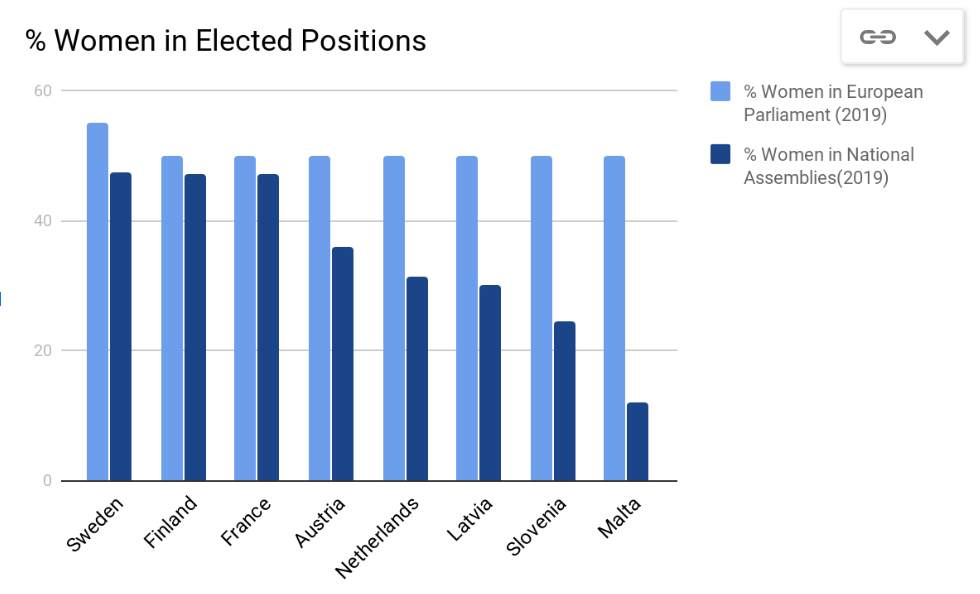
Gender parity in the new European Commission is a huge success, as is the number of countries reaching parity for their MEPs; but, for true gender equality to exist, women must have equal access and roles in all levels of government including municipal, national and supranational.
Ursula von der Leyen’s (Germany), the European Commission President-elect, new commission reaches near gender parity. Not only does this mark the first time the commission has reached such a high level of parity, it is done under the auspices of President-elect von der Leyen, the first ever woman President of the European Commission and the longest-serving minister in Angela Merkel’s governments. The commission which takes office on November 1, 2019, has 13 female appointees and 14 male appointees, one appointee for every country in the European Union, with the exception of the United Kingdom due to the provisional October 31st Brexit deadline. However, with the extension of the Brexit deadline to January 2020, the UK is expected to nominate a commissioner.
Along with the commission, the number of women MEPs reached an all time high in the most recent European Parliament elections this past May. For the ninth European Parliament, which will last from November 2019 to 2024, women make up 41 percent of the new MEPs, a step closer to parity from the 2014 elections in which women made up 37 percent, and leaps and bounds ahead of the first-ever EU elections in 1979, when female MEPs made up only 16 percent of the elected body. Nine of the twenty-seven EU member states reached perfect gender parity in their May 2019 elections; France, Luxembourg, Austria, Finland, Latvia, Malta, Slovenia and the Netherlands had a 50/50 break in their MEPs and Sweden elected 55 percent women MEPs.

Despite these accomplishments in the European Parliament’s gender parity, and the nine countries in particular, the parity in elected officials does not always correspond to the country’s national assemblies. According IPU global rankings of gender parity in national assemblies, despite reaching parity in the European Parliament elections, Austria is 28th with women holding 37.2 percent of seats, the Netherlands is 42nd with 31.3 percent, Latvia is 48th with 30 percent, Luxembourg is 68th with 25 percent, Slovenia is 73rd with 24.4 percent, and Malta is 155th with women only making 11.9 percent of the members.
Gender parity in the new European Commission is a huge success, as is the number of countries reaching parity for their MEPs; but, for true gender equality to exist, women must have equal access and roles in all levels of government including municipal, national and supranational.
Maura is a RepresentWomen Fall 2019 Research Intern from the Washington, D.C. area. She graduated from the University of St. Andrews in Scotland this past spring with an honors degree in Social Anthropology.